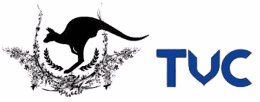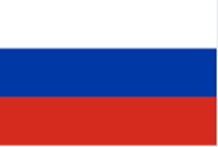

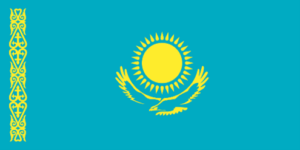

According to the agreement signed by Russia, Belarus and Kazakhstan on October 18, 2010, “Common Norms and Rules on Technical Specifications of the Republic of Kazakhstan, the Republic of Belarus and the Russian Federation”, the Customs Union Committee is committed to developing unified standards and requirements to ensure product safety, one certification for all three countries, thus forming the CU-TR certification of the Russian-Belarusian-Kazakhstan Customs Union. The unified logo is EAC.
Russian технических регламентов Таможенного союза сертификатов соответствия/деклараций о соответствии, abbreviation: TC English: technical regulations of the Customs Union conformity certificates / declarations of conformity (abbreviated as Custom Union TR Certificate, or CUC TR, CU certification). The Customs Union TR Certificate is also called EAC certification because its logo is EAC.
In order to make trade between the member states easier and to avoid technical regulatory barriers for importing and exporting products within this customs union, the Customs Union legislates to issue a mandatory Customs Union TR Technical Regulations Certificate. The Customs Union Technical Regulations certificate is the only proof that the product complies with the Customs Union technical regulations. The certificate is applicable to the entire territory of Russia, Belarus and Kazakhstan.
From February 15, 2013, all products that fall within the scope of certification of the Russian-Belarusian Customs Union (CU) are required to apply for CU-TR certification. As of March 15, 2013, Russia, Kazakhstan, and Belarus have stopped issuing GOST certificates based on their old regulations.
EAC CoC/DoC (Safety and EMC; Certificate Validity Period: 5 years)
EAC RoHS DoC (RoHS; Certificate Validity Period: 5 years)
| EAC CoC | External Power Supply | Sample testing 2 pcs | 4 weeks |
| EAC DoC |
Internal Power Supply (for industrial use; not available to general consumers) |
Document processing | 3–4 weeks |
| EAC RoHS | Both power supply types require application | Document processing | 3–4 weeks |
- CB Certificate & Report
- EMC (CE) test report
- Circuit, layout and other technical information
- Nameplate (with GOST-R logo)
- Applying for DOC verification requires local representative information
RF/Telecom
As a leading member of the Eurasian Economic Union (EAEU), the Russian Federation has successfully developed and implemented its own compliance assessment system based on international standards and covering local HS code, numerous schemes of declaration and certification, possibility of local laboratory testing and labeling. There are several state authorities involved in the compliance procedure: the Ministry of Digital Development, Communications and Mass Media of the Russian Federation (Минсвязь); the Federal Service for Supervision of Communications, Information Technology and Mass Media (Роскомнадзор); the General Radio Frequency Center (ГРЧЦ) and the Federal Security Service (ФСБ).
Products which are imported in Russia have to meet various technical requirements of the EAEU. The most common technical standards are TR CU 020/2011 (EMV) and TR CU 018/2011 (Safety of wheeled vehicles). However, IB-Lenhardt AG can provide approvals in line with further technical standards upon request.
Depending on the schemes of conformity assessment which determine the necessity of laboratory testing, we can advance an individual way of getting an approval in the shortest possible time. We also support our customers with EAC labeling and local representative contract in accordance with the Russian law.
Apart from the EAEU requirements, certain devices are to acquire further documentation for a smooth market access, for instance, Radio Equipment Conclusion (GRFC), FSB Notification and Certificate/Declaration of the Federal Communications Agency (FCA). IBL possesses a detailed knowledge about local requirements and competently assists you with market access in Russia.
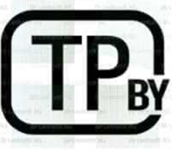
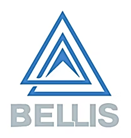
Since 2011, a unified technical regulation system has been established within the framework of the Customs Union (Belarus, Russia, Kazakhstan), and further upgraded to the Eurasian Economic Union (EAEU) of Belarus, Russia, Kazakhstan, Armenia, and Kyrgyzstan. An EAC certificate issued in one member state is valid in all 5 countries; CU/EAEU technical regulations (similar to EU directives) have been developed (e.g. LVD, EMC, RoHS) to regulate conformity approval and market access procedures.
For areas where there are no harmonized CU/EAEU technical regulations, Belarus has its own national requirements, in particular: energy efficiency/energy labeling, broadcasting/telecommunications, high-voltage cables; Belarusian energy efficiency requirements are consistent with EU requirements, and most national EE standards are developed by BELLIS.
Certification basic information
- Certificate validity period: 5 years
- Local agent: Need
- Factory inspection: Not required
Documents required for application
- Application
- CB
- CE
- Product label (including: product name, brand logo, model, rating, EAC logo, origin, serial number, manufacturing date)
- User Manual and Specifications
- CIG023 + ISO9001
- EMF Report or Announcement
- ErP report
- Samples (if the product category, trademark, or factory is applied for for the first time, then it is necessary to provide)
- Previous version certificate (Renew)
As a state member of the Eurasian Economic Union (EAEU), the Republic of Belarus accepts the EAEU compliance assessment system based on international standards and covering local HS code, numerous schemes of declaration and certification, possibility of local laboratory testing and labeling. Additionally, the Republic of Belarus has successfully implemented its national conformity system which involves mandatory local laboratory testing and labeling. The responsible authority, Ministry of Communications and Informatization of the Republic of Belarus, manages both approaches to homologation. Products which are imported in Belarus have to meet various technical requirements of the EAEU. The most common technical standards are TR CU 020/2011 (EMV) and TR CU 018/2011 (Safety of wheeled vehicles).
